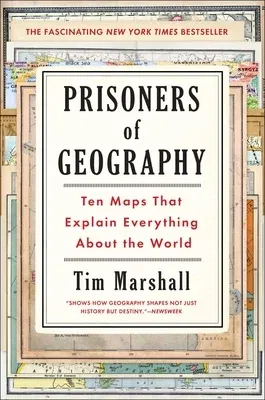In the bestselling tradition of Why Nations Fail and The Revenge of
Geography, an award-winning journalist uses ten maps of crucial regions
to explain the geo-political strategies of the world powers.
All leaders of nations are constrained by geography. Their choices are
limited by mountains, rivers, seas, and concrete. To understand world
events, news organizations and other authorities often focus on people,
ideas, and political movements, but without geography, we never have the
full picture. Now, in the relevant and timely Prisoners of Geography,
seasoned journalist Tim Marshall examines Russia, China, the USA, Latin
America, the Middle East, Africa, Europe, Japan and Korea, and Greenland
and the Arctic--their weather, seas, mountains, rivers, deserts, and
borders--to provide a context often missing from our political
reportage: how the physical characteristics of these countries affect
their strengths and vulnerabilities and the decisions made by their
leaders.
In ten, up-to-date maps of each region, Marshall explains in clear and
engaging prose the complex geo-political strategies of these key parts
of the globe. What does it mean that Russia must have a navy, but also
has frozen ports six months a year? How does this affect Putin's
treatment of the Ukraine? How is China's future constrained by its
geography? Why will Europe never be united? Why will America never be
invaded? Shining a light on the unavoidable physical realities that
shape all of our aspirations and endeavors, Prisoners of Geography is
the critical guide to one of the major (and most often overlooked)
determining factors in world history.

